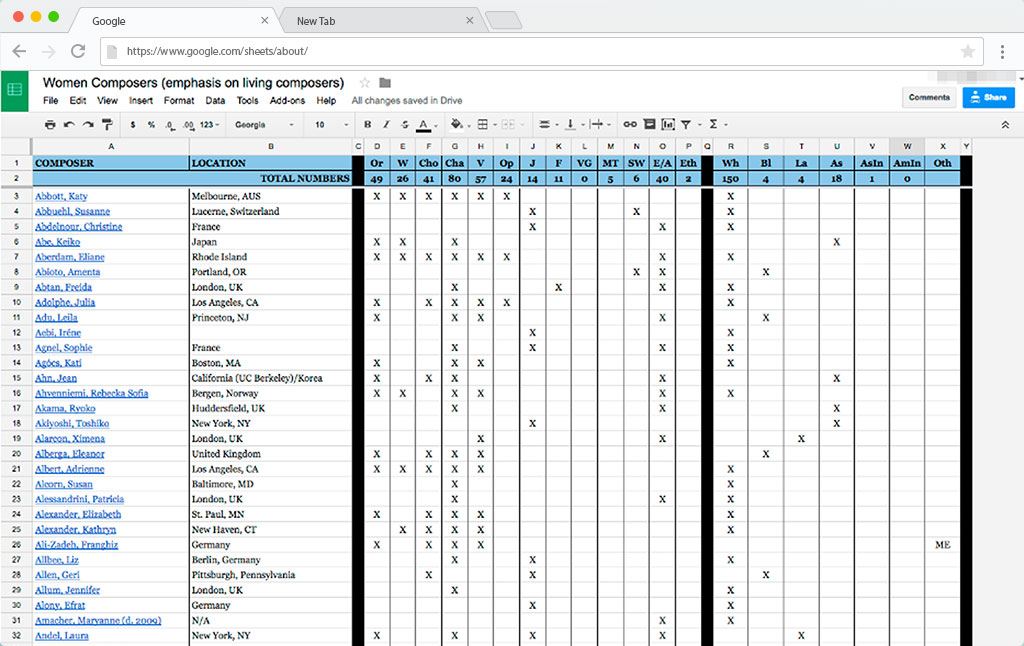Since August of 2016, I have had the fantastic opportunity to be an American Council on Education Fellow, which has let me take a year off of teaching music composition at the State University of New York at Fredonia and learn as much as I can about leadership in higher education through a year-long residency at Baldwin Wallace University
Much of my time this year has been spent working on projects at both my host and home institutions as well as with my 28 fellow Fellows who are based across the country. These projects have forced me to investigate new mobile-based applications, become better acquainted with tools to which I had barely paid notice in the past, and explore new ways to use online mainstays I had been using for years.
Communication
One challenge that faced my cohort of Fellows early on was how to communicate quickly and efficiently while we were scattered throughout the country.
Luckily one of our merry band, Jake Zhu from CSU-San Bernardino, introduced us to WhatsApp, a robust messaging application that allowed us to keep in contact with each other on a daily basis.
As we used the application over time, we discovered how easy it was to create threads with sub-groups and individuals for projects, topics, or campus visits. Whenever anyone comes across an article, book, or website that they feel will be useful to the cohort, we will upload links for all to see (this works especially well during presentations while visiting institutions or organizations).
Whatsapp’s “archive” function allows for us to download each thread and parse out those saved resources for future use. While this application is very useful for organizing trips and resources, its greatest use is to allow each of us to form strong bonds with each other while we are living away from our homes and constantly traveling.
Spreadsheet Skills
Google Docs has been a strong member of my toolbox for quite some time, but I’ll admit I rarely found the need to use the Sheets spreadsheet application till about two years ago.
In addition to the onslaught of data sheets that anyone playing in the higher education sandbox might expect to find, I find myself using the tool for a great many other uses. These include a Direct Instructional Expenditure-per-Student Credit Hour calculator,a quick-and-dirty calendar of my various travels throughout my fellowship, a soon-to-be public database on women composers that will allow users to search by genre and by race, and even a thematic and orchestrational infographic on one of my own compositions.
An example of a function that could be useful to others is counting up “X’s”, as seen in the image below of my women composers database. I didn’t want to have the number “1” represent whether or not a composer had written any orchestral music, for example, so I dug around until I found this helpful function: =COUNTIF(D3:D1651,”X”). Because this particular spreadsheet is intended to be seen publicly, such a function is very useful!
While the idea of using Excel or another spreadsheet application is not exactly groundbreaking in and of itself, the more I use it the more I’m finding the way I think about inputting information digitally has changed over time.
Resources
I enjoy podcasts as much as the next person but I have become enamored with a great number of video series on YouTube. It’s been years since I lived in L.A. and pursued a life in film music, but the last few years have seen a growing number of smart series about how films are made (Every Frame a Painting, RocketJump Film School, and D4Darious), how they can be analyzed (Cinefix, New Rockstars, Nerdwriter1, History Buffs, and Now You See It), and what is going on in the industry on a daily basis (Collider Movie Talk, Nerdist, and ScreenJunkies).
In addition, there are a great many educational series that provide informative learning in short, entertaining packages about the sciences, history, current events, and many other topics (vlogbrothers, CrashCourse, SciShow & SciShow Space, and It’s Okay to be Smart).

Watching these topics allows me to find connections and inspirations from outside of my own disciplines and discover how much further ahead these areas are in utilizing video to convey their information than either concert music or higher education. Using the “Watch Later” function in YouTube, I can organize and save a lineup of videos to run consecutively while I’m on the road or in the hotel.
Finally, using informational resources such as ArtsHacker to discover what tools are available and using training resources such as Lynda to learn how to use those tools have been extremely helpful during my adventures in higher ed leadership this year.
It’s rare to find opportunities for professional development at this level at this stage in my career, and intentionally exploring new tools and new ways to use old tools has made the experience all the more valuable.


